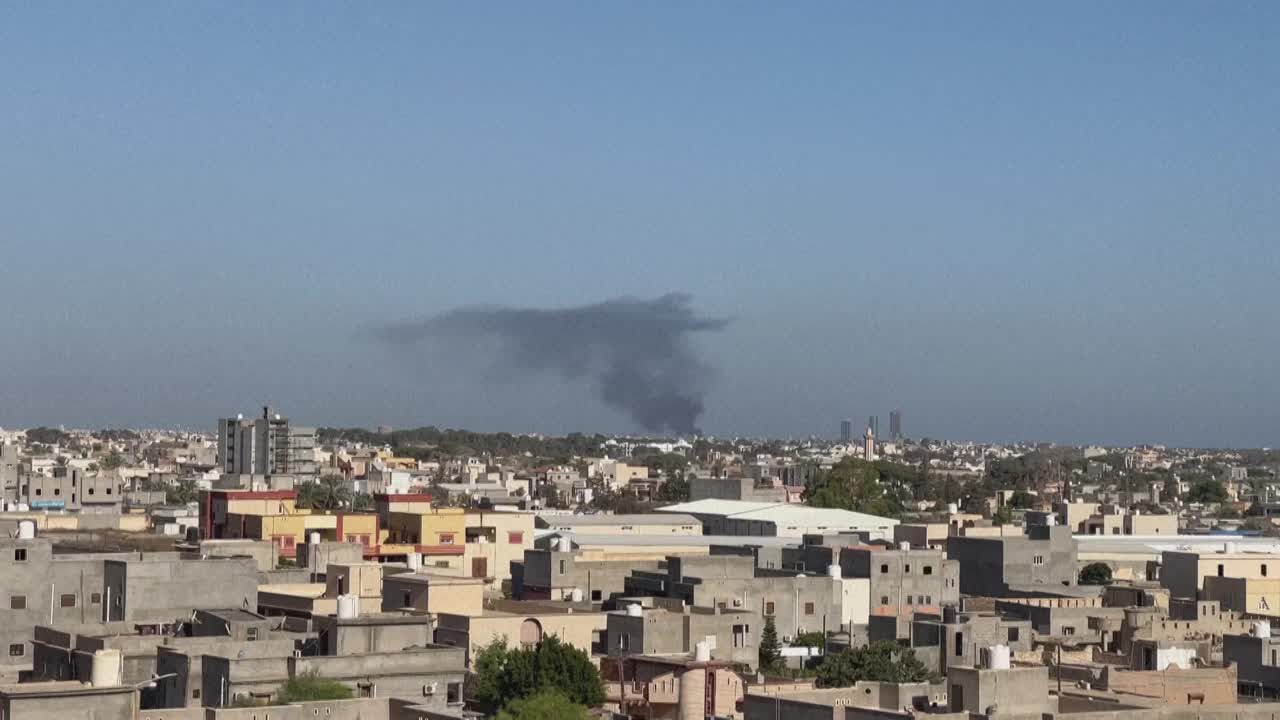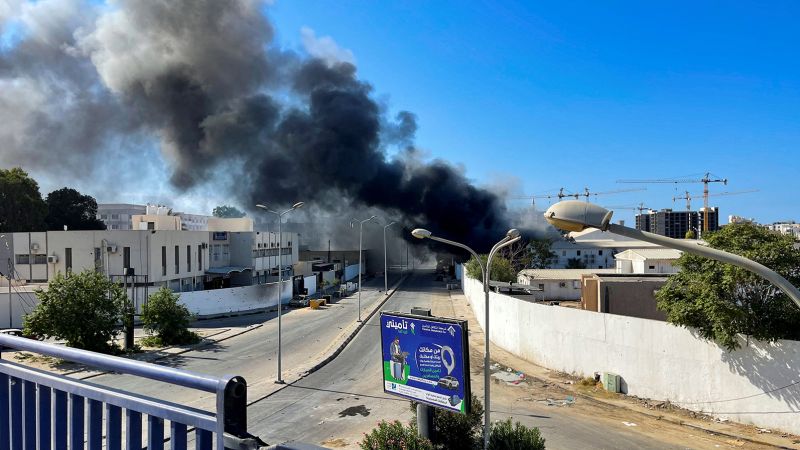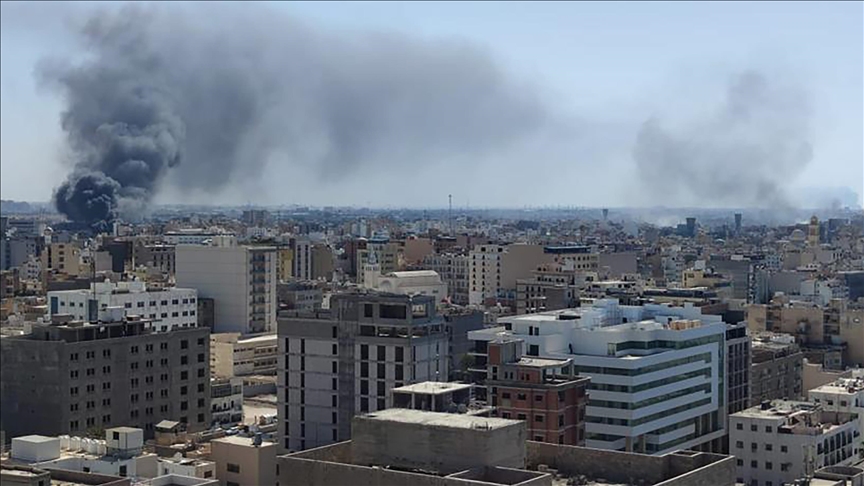Tragedy Unfolds as 27 Lives Lost in Fierce Confrontation Between Rival Factions in Libya’s Capital

Tragedy Unfolds as 27 Lives Lost in Fierce Confrontation Between Rival Factions in Libya’s Capital
In a distressing turn of events, a fierce clash between two rival factions in the southern Libyan capital of Tripoli has left a devastating toll of at least 27 people dead and 106 others grievously injured. This harrowing incident, which has sent shockwaves through the nation, highlights the volatile nature of the situation in Libya and the urgent need for stability.
The confrontation erupted unexpectedly, pitting two powerful armed factions against each other in a battle that rapidly escalated into a bloodshed of unprecedented proportions. The resulting chaos and loss of life have underscored the pressing need for a comprehensive and sustainable resolution to the ongoing conflicts that have plagued Libya for years.
The clashes took place on a somber Tuesday, as the sun cast long shadows over the city. According to reports from the country’s emergency services, the violence erupted without warning, catching many residents off guard. The sound of gunfire and explosions echoed through the city’s streets, and the unmistakable smell of smoke hung heavy in the air. Panicked civilians sought refuge indoors as the confrontations unfolded, leaving the city’s usually bustling streets eerily deserted.
As the dust settles and the extent of the tragedy becomes clear, it is evident that these clashes have struck at the heart of Libya’s already fragile stability. The factions involved in the conflict remain unnamed in official statements, but sources indicate that their roots trace back to longstanding rivalries over control of key territories and resources. Such deep-seated animosities have repeatedly flared into violence, leaving civilians as unwitting casualties of a power struggle that seems to have no end in sight.

The toll on human life is nothing short of devastating. Families are left shattered, mourning the loss of loved ones who fell victim to a conflict they did not choose. The injured, many in critical condition, are struggling to access medical care in a healthcare system that has been stretched to its limits by years of turmoil. Hospitals are overflowing, medical supplies are running scarce, and healthcare workers are bravely tending to the wounded despite the overwhelming odds.
The international community has responded with a mix of concern and condemnation as news of the clashes spread. Governments from around the world have called for an immediate cessation of hostilities and a return to negotiations. The United Nations, which has been actively engaged in efforts to bring stability to Libya, issued a statement condemning the violence and expressing deep sorrow for the loss of life.
This tragic incident further highlights the need for a coordinated and concerted effort to address the root causes of the conflict in Libya. The country’s political landscape remains fragmented, with multiple factions vying for control and influence. The absence of a unified government has created a power vacuum that armed groups have exploited to further their own agendas, often at the expense of the civilian population.

As discussions continue on the international stage regarding the best path forward, it is imperative to remember the human cost of such conflicts. Behind every casualty count is a story of an individual, a family, a community, forever changed by the events that unfolded on that fateful day. The memories of the victims serve as a painful reminder of the urgent need for diplomacy, compromise, and a collective commitment to building a peaceful Libya.
The Libyan people, who have endured years of violence, instability, and economic hardship, deserve a future that is free from the specter of conflict. It is incumbent upon the country’s leaders, as well as the international community, to prioritize the well-being of civilians and work toward a sustainable resolution that paves the way for lasting peace.

In the wake of this tragedy, the world watches with bated breath, hoping for a glimmer of hope amid the darkness. The road to recovery will undoubtedly be challenging, and the wounds inflicted by this latest clash will take time to heal. Yet, if there is one lesson to be learned from the events in Tripoli, it is that the cost of inaction far outweighs the difficulties of seeking a peaceful solution. Only through a unified and unwavering commitment to peace can Libya rise from the ashes of conflict and chart a course toward a brighter future.



